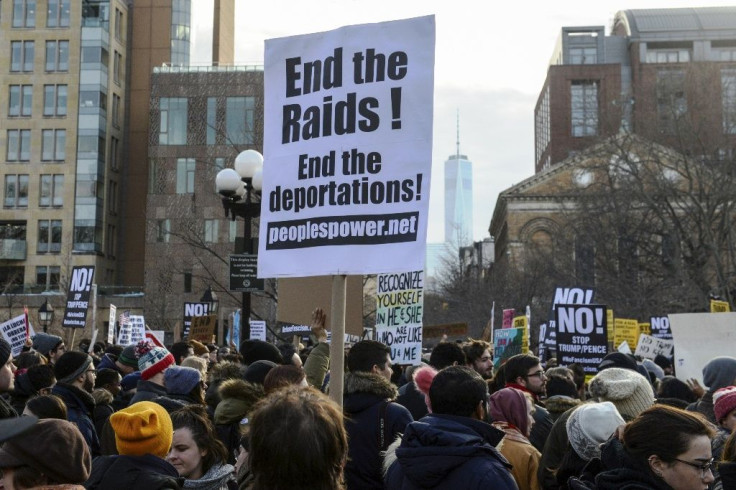Does Trump Know What He Is Doing? Immigration Plan To Deport Mexicans Didn’t Work Out Last Time A US President Tried It

In a tweet from June last year, when Donald Trump was still campaigning, he said: “Hillary Clinton's open borders immigration policies will drive down wages for all Americans - and make everyone less safe.” Now, a new historical case study has debunked Trump’s wage claims by comparing his argument to a similar experiment in the 1960s that started out during Democratic former President John F. Kennedy's term and finished under his successor Lyndon Johnson by 1964.
The two-yearlong study carried out by Ethan Lewis of Dartmouth College and Michael A. Clemens and Hannah Postel, economists from the Center for Global Development, explored whether the experiment — the expulsion of Mexican braceros (manual laborers) to work (mostly farm work) temporarily in the U.S. — was successful in its stated aim of raising American wages.
Contrary to what Trump believes and what the Democrats of the '60s believed, which the study claims are simplistic and incorrect understanding of basic supply and demand laws of economics, the experiment did not raise American wages. In fact, the report contrarily found that there was a growth in wages in states where Mexican workers were not removed from.
Clemens noted in an article for the Politico Magazine that Kennedy’s beliefs about the economic effect of ending the braceros' program were based on the recommendations of a Department of Labor commission report, which was led by Rufus von KleinSmid, a charter member of a society of eugenicists who believed that "Mexicans constituted a genetically inferior race.”
The reason for its failure is that American businesses were able to adapt to the problem posed by the scarcity of labor through innovation and introduction of machines, according to the report.
For example, while the tomato picking business in California didn’t miss the braceros and was able to adapt within a year by introducing mechanized harvesters for production, other crops such as asparagus and fresh strawberries that didn’t have a technological solution couldn’t cope and saw a decline in production.
But with Trump’s other policies, that may no longer be an option. Moreover, several other reports have criticized Trump’s plan to build a border for the potential waste of taxpayer money. According to another study, Trump’s policies such as his executive order that introduced an immigration ban on seven countries is equally damning for innovation and in turn for the U.S. economy. The February 2017 working paper, from researchers at the University of Chicago and the Harvard Business School, argued that despite receiving lower wages than American natives, migrants made “substantial” contributions to the innovation and growth of the U.S. economy.
© Copyright IBTimes 2024. All rights reserved.












